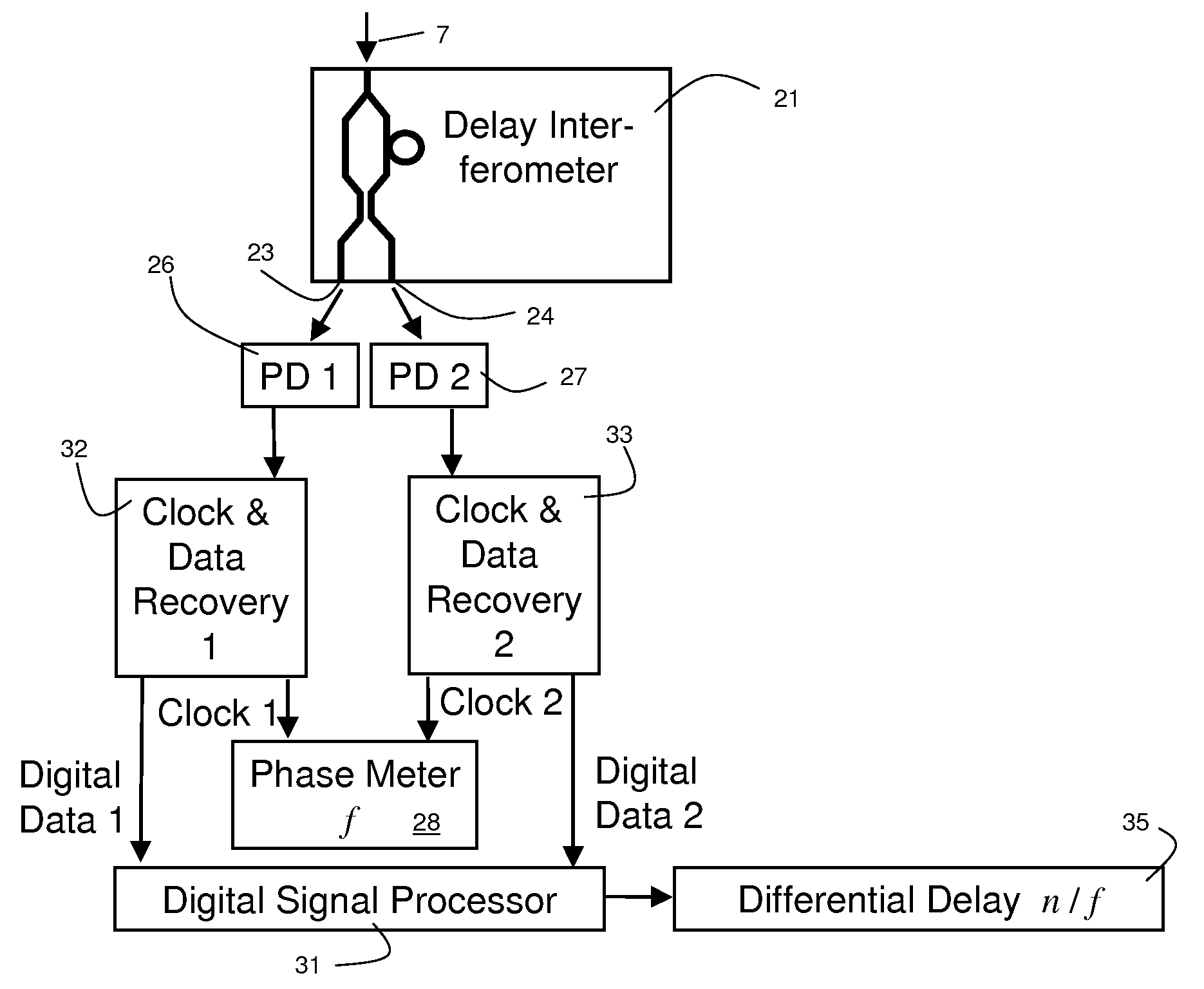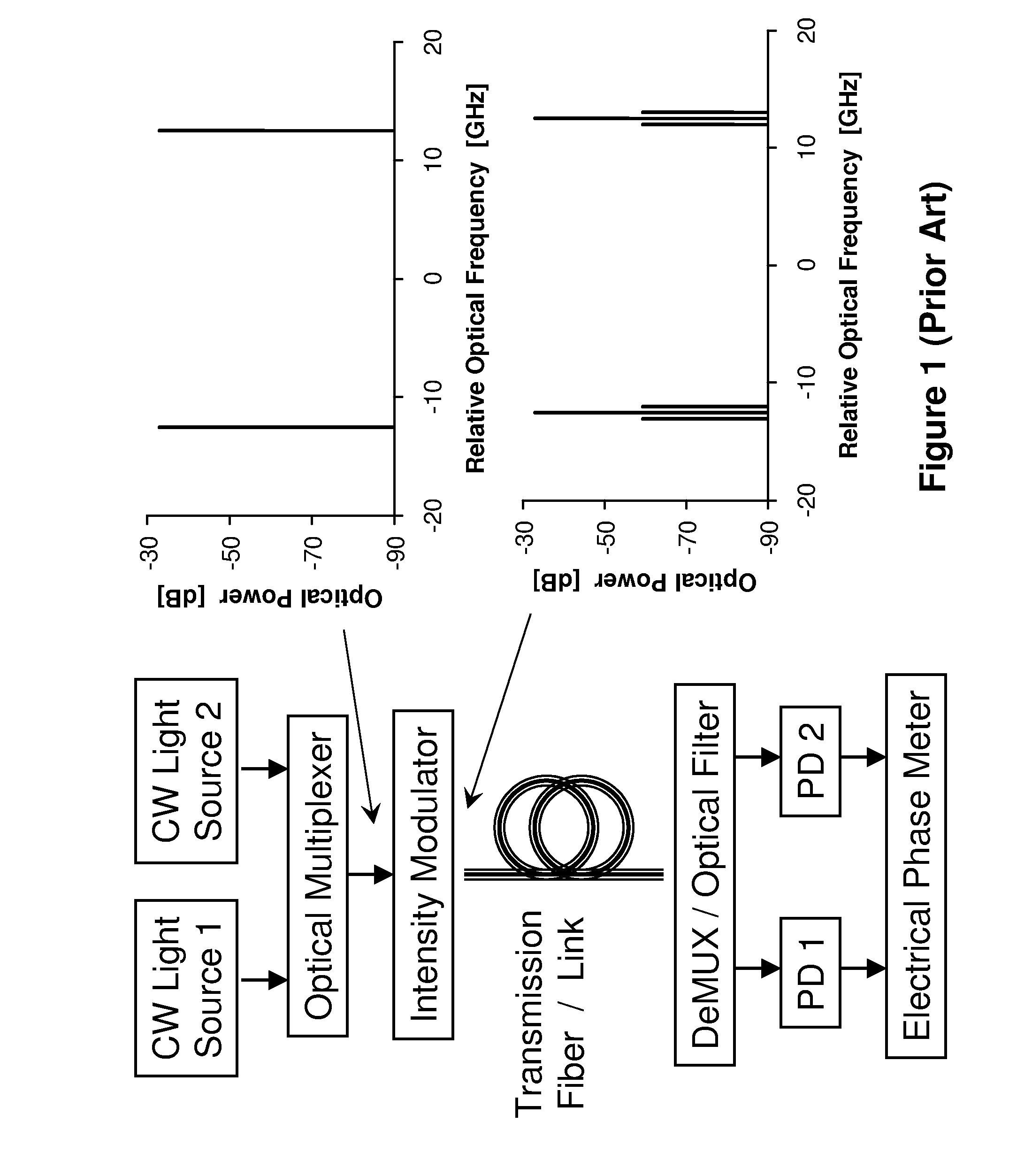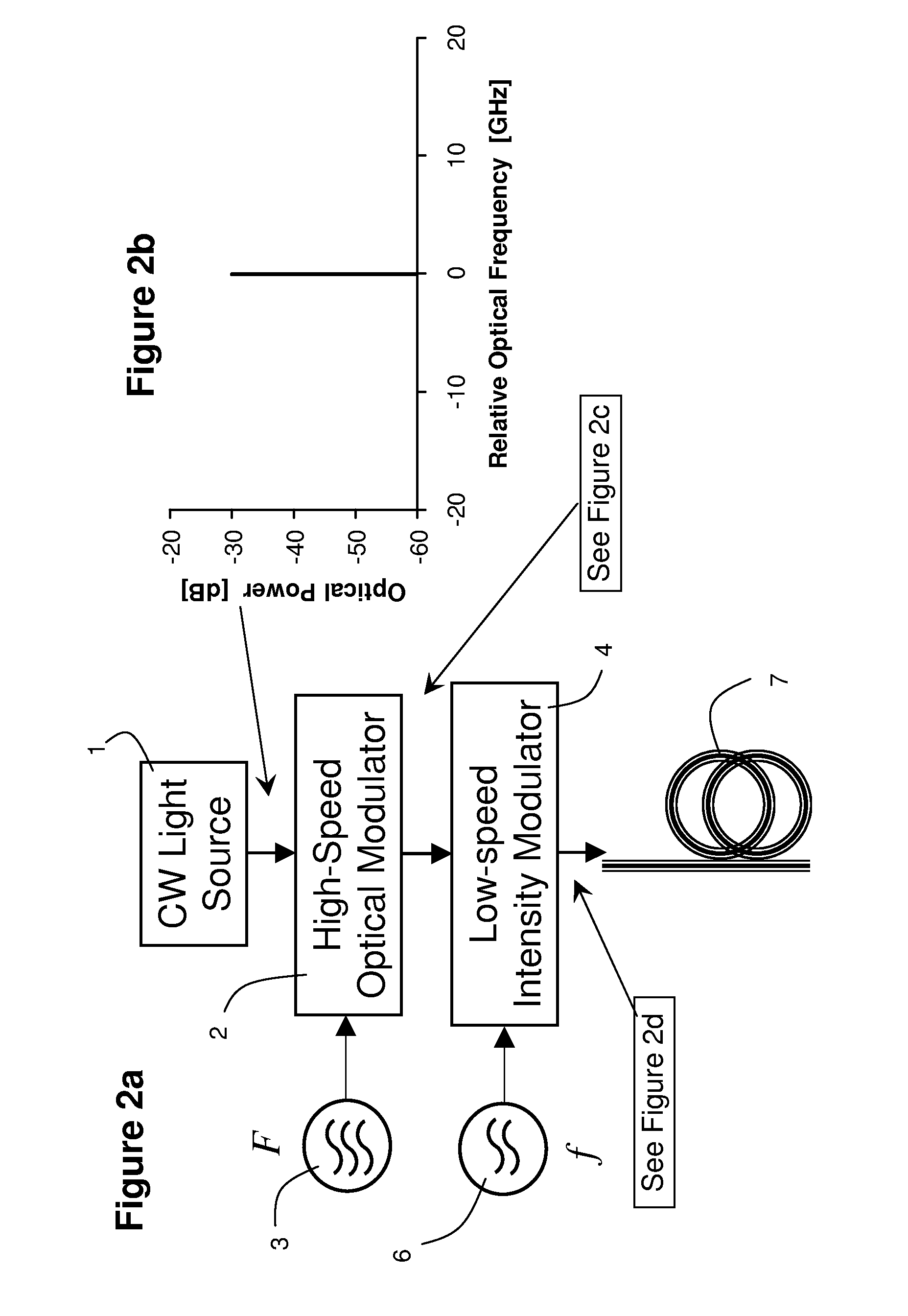Measuring chromatic dispersion in an optical wavelength channel of an optical fiber link
a technology of optical fiber link and wavelength channel, which is applied in the direction of optical apparatus testing, transmission monitoring, instruments, etc., can solve the problems of affecting the ability of certain transmission systems to upgrade to transmit signals, and affecting the quality of transmitted signals
- Summary
- Abstract
- Description
- Claims
- Application Information
AI Technical Summary
Benefits of technology
Problems solved by technology
Method used
Image
Examples
Embodiment Construction
[0055]With reference to FIG. 2a, a front end apparatus of the present invention includes only one tunable laser source 1, which is tuned to a selected, e.g. the center, frequency of a wavelength channel to be measured, as graphically illustrated in FIG. 2b. Two modulated sideband test signals are generated from the single laser source 1 by means of a first electro-optic amplitude modulator 2, which is driven by a high-speed radio-frequency electrical signal with a frequency F generated by a high-speed RF signal generator 3. In a preferred implementation of the invention, the first amplitude modulator 2 is a chirp-free Mach-Zehnder interferometer, in which equal, but opposite, phase modulation is generated in the two arms of the interferometer, and the modulation frequency F is nominally 12.5 GHz. The modulation frequency F in principle can be as low as 1 MHz or as high as 100 GHz. In practical applications, it is usually preferred that F be as high as possible in order to obtain the...
PUM
 Login to View More
Login to View More Abstract
Description
Claims
Application Information
 Login to View More
Login to View More - R&D
- Intellectual Property
- Life Sciences
- Materials
- Tech Scout
- Unparalleled Data Quality
- Higher Quality Content
- 60% Fewer Hallucinations
Browse by: Latest US Patents, China's latest patents, Technical Efficacy Thesaurus, Application Domain, Technology Topic, Popular Technical Reports.
© 2025 PatSnap. All rights reserved.Legal|Privacy policy|Modern Slavery Act Transparency Statement|Sitemap|About US| Contact US: help@patsnap.com



